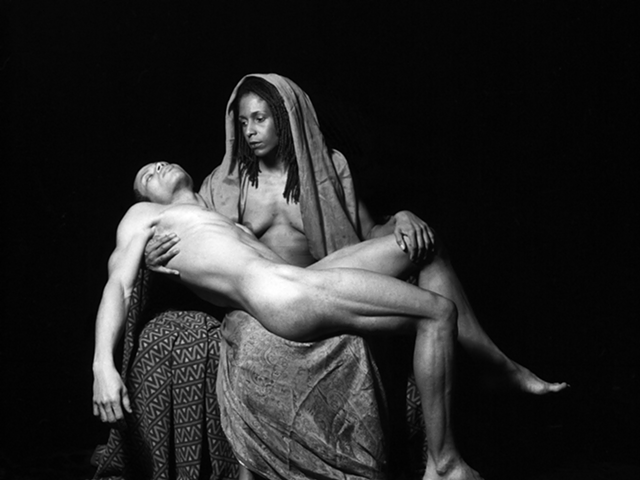Upon learning of actor Christopher Lee’s passing, I decided to view him in the role he thought was his finest, as the villain in the British cult classic The Wicker Man. It’s a strange film, one that shifts from mystery to horror to baleful Pagan-folk musical with simmering disquiet. Although at the time considered by its studio to be unmarketable, it’s now considered one of British cinema’s crown jewels.
We follow a Scottish cop named Howie as he visits an island in search of a missing girl, only to find his investigation upended by the villagers’ stoic failure to cooperate. Edward Woodward is Howie, a pious Christian who is disturbed when he discovers that the islanders practice an occult Pagan faith that embraces Celtic rituals to help harvest their crops. Howie is horrified as he observes villagers copulating outside, putting frogs in their mouths to cure sore throats and donning bizarre animal masks.
The film, directed by Richard Hardy, has been christened “the Citizen Kane of horror movies,” but, if we’re sticking exclusively to Orson Welles metaphors, I would say it’s more like horror’s Touch of Evil; rather than reinventing the cinematic wheel, both films instead subvert their genres' expectations (Welles with noir, Hardy with horror) in ways that ultimately establish them as the apex of what that genre can offer. The Wicker Man, like Touch of Evil, exploits low angle shots and handheld cameras to elicit its menacing undertones that make it the creepy success it is. For sure, both filmmakers are able to use budgetary confines to their benefit; The Wicker Man’s camerawork, with its slow pans, cheap set pieces and lack of contrast, can seem almost amateurish in its levity, but it justly lets the actors carry the themes.
Interestingly, the film’s action is shot mainly during the day, an effective approach that instills a sense of the macabre in the bucolic. This can later be in seen in descendants like David Lynch’s Blue Velvet, another film that smudges horror and mystery in broad daylight. Diagetic folk music jangles throughout, and the carnal pressures between Howie, a virgin, and an innkeeper’s siren-daughter, Willow, are a dramatic thread that stretches taut across the parable, threatening to snap like the discordant strings heard in the film’s harrowing lyre motif.
It’s the dissonance of faith between Howie and the movie’s antagonist, Lord Summerisle, that affords the film a deserved cult status. Although he doesn't get as much screen time as he deserves, Christopher Lee’s convincing performance as the island messiah is a superb foil to Woodward’s oscillating states of prudishness and bewilderment. Unlike his Hammer Horror productions, Lee lends his thunderous baritone in an understated way, making his delusional puritanical incantations all the more perturbing and bolstering the film’s atmosphere.
Though the setting can resemble the Stone Ages (at one point there is a literal Stonehenge replica), The Wicker Man is an undeniable product of the ’70s in its aesthetics, and its wild, peculiar sexuality feels like a grotesque wink to the Summer of Love that had dissolved a few years prior. A note — the vertiginous twist that arrives in the third act of the film is much more of an experience if you avoid any of the movie’s posters, but no matter what, Lee’s most resounding line will haunt you: “Come,” he says almost without expression. “It is time to keep your appointment with the Wicker Man.”





